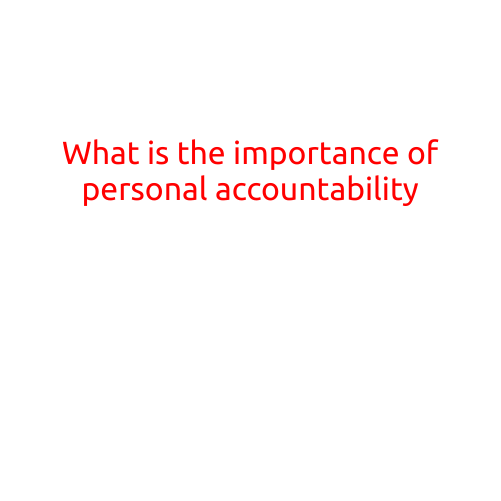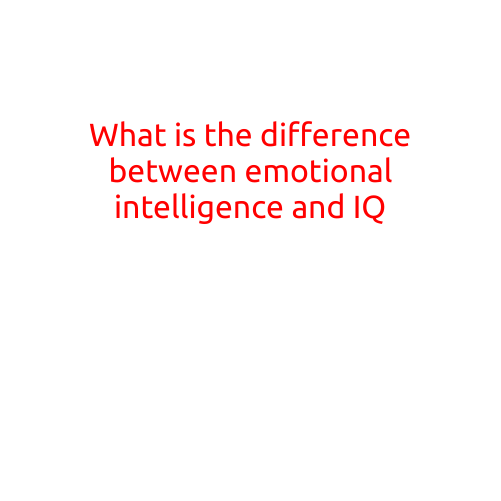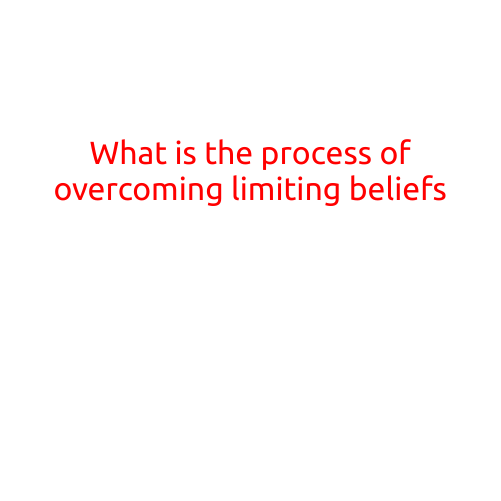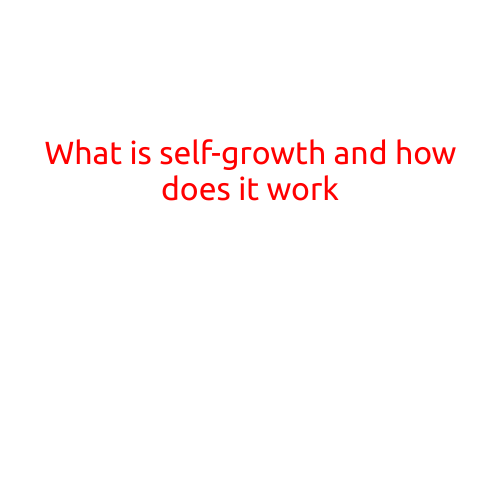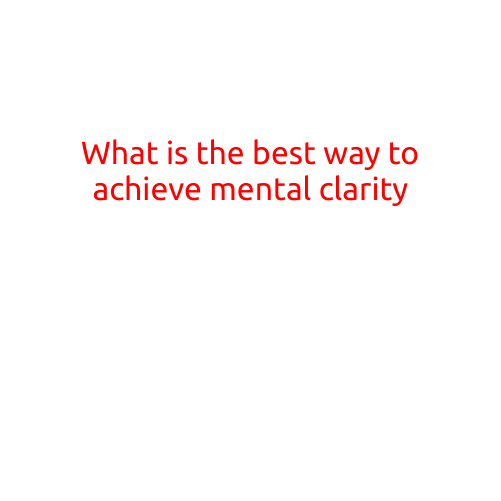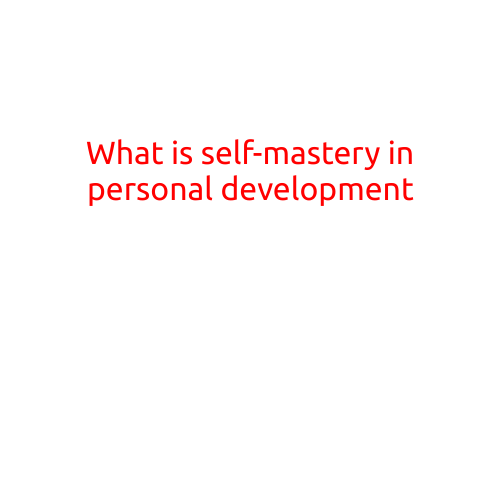
What is Self-Mastery in Personal Development?
In today’s fast-paced world, achieving personal development and self-improvement has become a crucial aspect of living a fulfilling life. Among the many approaches to personal growth, self-mastery has emerged as a powerful concept that has gained significant attention in recent years. So, what is self-mastery, and how can it benefit your personal development journey?
What is Self-Mastery?
Self-mastery refers to the process of taking control of your thoughts, emotions, actions, and behaviors to achieve personal growth, self-awareness, and inner peace. It involves developing a deep understanding of yourself, recognizing your strengths and weaknesses, and cultivating the skills and habits necessary to overcome obstacles and achieve your goals.
In essence, self-mastery is about becoming the master of your own life, rather than being controlled by external factors such as circumstances, other people’s opinions, or your own emotions. It’s about developing a sense of autonomy, agency, and self-trust, allowing you to make intentional decisions that align with your values and goals.
Key Components of Self-Mastery
To achieve self-mastery, you need to focus on several key components:
- Self-Awareness: Developing a deep understanding of your thoughts, emotions, values, and beliefs is crucial to self-mastery. This involves recognizing your strengths, weaknesses, and areas for improvement.
- Emotional Intelligence: Emotional intelligence is the ability to recognize and manage your emotions, as well as empathize with others. This helps you make intentional decisions and respond to challenges in a more effective way.
- Goal Setting: Setting clear goals and priorities helps you focus your efforts and maintain direction, ensuring you’re working towards what’s truly important to you.
- Mindfulness: Practicing mindfulness helps you stay present and focused, allowing you to make conscious choices and avoid distractions.
- Self-Discipline: Building self-discipline involves developing habits and routines that support your goals and values.
- Resilience: Resilience is the ability to bounce back from setbacks and failures, using them as opportunities for growth and learning.
Benefits of Self-Mastery
Achieving self-mastery can have a profound impact on your personal development journey. Some of the key benefits include:
- Increased Confidence: Self-mastery helps you build confidence in your abilities, allowing you to take risks and pursue new opportunities.
- Improved Decision-Making: With self-mastery, you’re better equipped to make intentional decisions that align with your values and goals.
- Enhanced Emotional Intelligence: Self-mastery develops your emotional intelligence, enabling you to navigate difficult situations and relationships with greater ease.
- Greater Purpose: Self-mastery helps you discover your purpose and values, allowing you to live a more authentic and meaningful life.
- Increased Productivity: By staying focused and motivated, self-mastery can help you achieve your goals more efficiently and effectively.
Conclusion
Self-mastery is a powerful concept in personal development that offers numerous benefits for achieving personal growth and self-improvement. By focusing on self-awareness, emotional intelligence, goal setting, mindfulness, self-discipline, and resilience, you can develop the skills and habits necessary to take control of your life and achieve your goals. Whether you’re looking to overcome obstacles, achieve a sense of purpose, or simply live a more fulfilling life, self-mastery is an essential aspect of personal development that can help you unlock your full potential.
